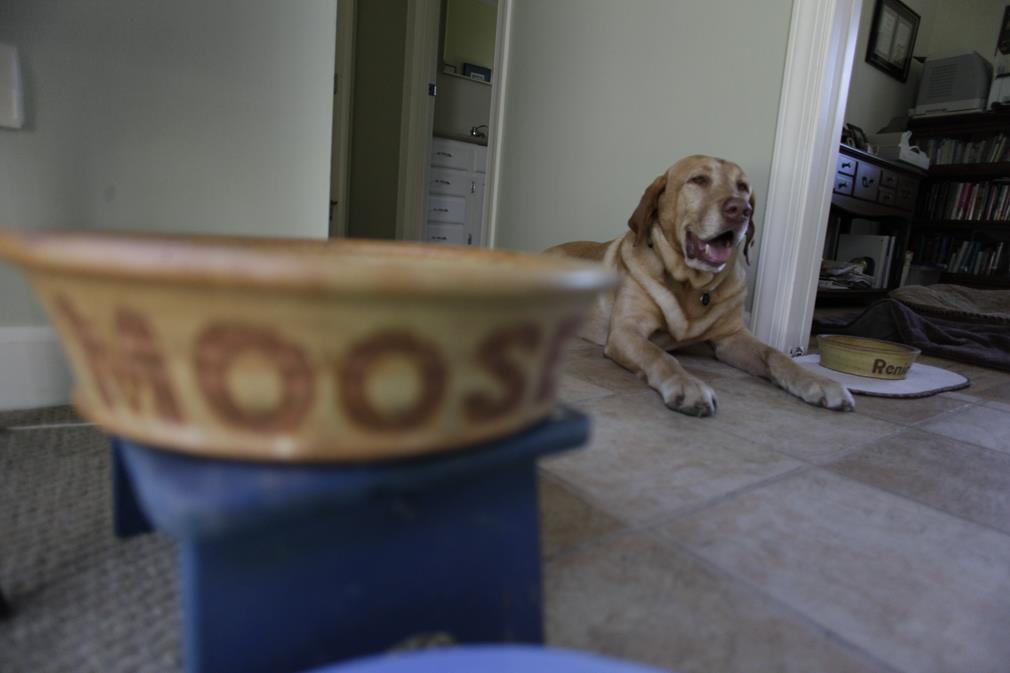Clinical Studies Core at the Center of One Medicine Efforts at NC State College of Veterinary Medicine

Photo by Hannah Sharpe/ The Pilot
For dogs like Moose—a friendly yellow Labrador retriever—a day of volunteering for a clinical study at North Carolina State University might involve walking on a pressure mat to evaluate his arthritis, having blood samples taken for epilepsy studies, or receiving a therapeutic diet to help his immune system settle down and improve his inflammatory skin disease.
No one day is like any other for animal participants in the Clinical Studies Core within NC State’s Center for Comparative Medicine and Translational Research (CCMTR). The research program advances the health of companion animals like Moose as well as horses, farm, and exotic animals by exploring the causes of naturally occurring diseases and developing and testing novel treatment therapies.
Since many health issues that affect animals also affect people, the knowledge gained in these animal studies may be of direct interest to researchers in human medicine. For example, a study exploring regenerative treatments for canine osteoarthritis—a condition expensive to treat and one that can cause other issues—may result in a discovery that not only helps dogs but may improve the quality of human life as well.
This “One Medicine” concept, which is the foundation for the CCMTR, dates to the 19th pathologist Rudolph Virchow who said, “Between animal and human medicine there is no dividing line—nor should there be. The object is different but the experience obtained constitutes the basis of all medicine.”
The Clinical Studies Core (CSC) is currently facilitating more than 20 of these One Medicine investigations under the direction of Dr. Duncan Lascelles, associate director of the CCMTR, with support from manager Janet Bogan and coordinator Lyndy Harden. Since the creation of the CSC in 2007—a grant from Novartis Animal Health provided initial funding—faculty and staff have investigated cancer, epilepsy, nutrition, cardiology, regenerative medicine, and numerous other aspects of animal health and wellness.

“We often learn a good deal in a limited clinical trial that explores a specific question and may involve only a few animals,” says Lascelles. “These pilot or smaller projects, which can be supported by owners, donors and industry interests, help us develop the knowledge base needed to apply for more extensive research funding from corporate and government entities.”
Owner Lydia Boesch says, “It’s exciting to have Moose participate studies that may help him and other pets. He has benefited in so many ways. We both love to give back, especially in ways that may help pets and people.”
For more information on how you might be able to partner with the CCMTR and participate in CSC investigations, contact Dr. Jorge Piedrahita, jorge_piedrahita@ncsu.edu or Julie Nettifee Osborne, janettif@ncsu.edu.
Moose has also been a patient of the Cardiology, Dermatology, and Orthopedic Services at the Randall B. Terry, Jr., Companion Animal Veterinary Medical Center and has participated in the following clinical studies:
- Seizure Study
- Dermatology Study
- Orthopedics/Pain Study


